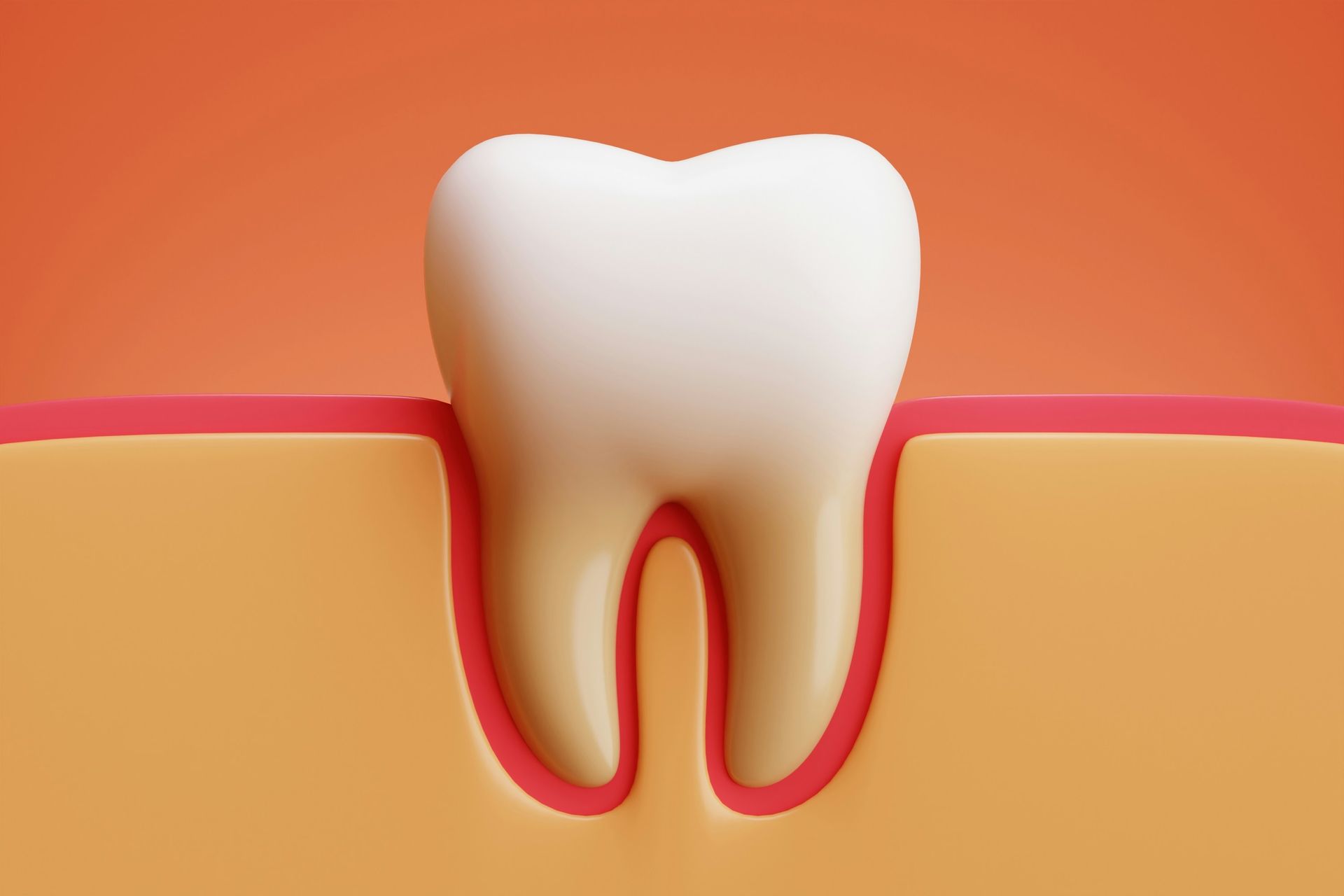The Importance of Gum Health
Your Gum Health is closely linked to your overall Health

Why Gum Health is More Important Than You Think
Gum health is often overshadowed by the focus on teeth care, yet it plays a crucial role in maintaining overall oral hygiene. Many individuals are unaware that their gums are the foundation upon which their dental health rests. Neglecting gum care can lead to a host of dental issues, including gum disease, which can significantly impact both oral and systemic health.
In this article, we will delve into why gum health is vital, explore the connections between gums and overall health, and provide practical tips for maintaining healthy gums. 😁
The Importance of Gum Health
Gums are more than just the soft tissue surrounding your teeth; they serve as a protective barrier and support system for your teeth. Healthy gums are essential for preventing tooth loss, as they anchor teeth securely in the jawbone. Furthermore, research has shown that gum health is closely linked to overall health, making it crucial to prioritise gum care as part of your oral hygiene routine.
Understanding Gum Disease
Gum disease, or periodontal disease, is an infection of the tissues surrounding and supporting the teeth. It begins with plaque buildup, which, if not removed, can harden into tartar and lead to inflammation of the gums, a condition known as gingivitis. If left untreated, gingivitis can progress to periodontitis, a more severe form of gum disease that can result in tooth loss.
Common Symptoms of Gum Disease
- Swollen or red gums: Healthy gums should be firm and pink. Any changes in colour or texture can indicate gum disease.
- Bleeding during brushing or flossing: This is often one of the first signs of gum disease.
- Persistent bad breath: Chronic bad breath may be a sign of gum infection.
- Receding gums: Gums that pull away from teeth can expose the roots, leading to increased sensitivity and risk of decay.
Recognising these symptoms early is essential for effective treatment and prevention of further complications.
The Connection Between Gum Health and Overall Well-being
Recent studies have indicated a significant connection between gum health and overall health. Poor gum health has been associated with various systemic conditions, including heart disease, diabetes, and respiratory issues.
How Gum Disease Affects Heart Health
Research has shown that individuals with gum disease are at a higher risk of developing heart disease. The inflammation caused by gum disease can lead to plaque buildup in the arteries, increasing the likelihood of heart attacks and strokes. By maintaining good gum health, you can potentially lower your risk of cardiovascular problems.
The Link to Diabetes
Diabetes and gum disease have a bidirectional relationship. Individuals with diabetes are more susceptible to infections, including gum disease, while gum disease can make it more challenging to control blood sugar levels. This creates a vicious cycle that can exacerbate both conditions.
Other Health Risks
In addition to heart disease and diabetes, poor gum health has been linked to other health issues, such as:
- Respiratory infections: Bacteria from gum disease can be inhaled into the lungs, leading to respiratory problems.
- Pregnancy complications: Some studies suggest that gum disease may be linked to premature births and low birth weight.
Recognising the broader implications of gum health can motivate individuals to prioritise their oral hygiene.
Recognising Healthy vs. Unhealthy Gums
Understanding the characteristics of healthy gums versus those affected by gum disease can empower individuals to take charge of their oral health.
Characteristics of Healthy Gums
· Colour: Healthy gums are typically a pale pink.
· Firmness: They should feel firm to the touch and fit snugly around teeth.
· No Bleeding: Healthy gums do not bleed during brushing or flossing.
Signs of Unhealthy Gums
· Redness and Swelling: Unhealthy gums often appear red and swollen.
· Softness: They may feel spongy or loose around the teeth.
· Bleeding: Frequent bleeding during oral care routines is a significant warning sign.
By being vigilant about these signs, individuals can seek treatment early and prevent further complications.
Daily Habits for Maintaining Healthy Gums
Maintaining healthy gums doesn’t have to be complicated. Simple daily habits can significantly impact your gum health.
Brushing and Flossing
- Brush Twice Daily: Use fluoride toothpaste and brush for at least two minutes, ensuring you reach all areas of your mouth.
- Floss Daily: Flossing removes plaque and food particles between the teeth and along the gum line, where a toothbrush may not reach.
Regular Dental Check-ups
Routine visits to your dental professional are crucial for maintaining gum health. These check-ups allow for professional cleaning, which can remove tartar buildup and prevent gum disease. Your dentist can also identify early signs of gum problems and recommend appropriate treatments.
Dietary Considerations
Your diet plays a significant role in your gum health. Foods rich in vitamins and minerals can strengthen your gums, while sugary and acidic foods can contribute to gum disease.
- Vitamin C: This vitamin is essential for gum health. Include citrus fruits, strawberries, and leafy greens in your diet.
- Hydration: Staying hydrated helps maintain saliva production which is vital for neutralising acids and washing away food particles.
The Role of Professional Care in Gum Health
While daily care is essential, professional dental services play a vital role in maintaining gum health. Regular cleanings and check-ups can prevent gum disease and identify issues before they become severe.
Scaling and Root Planing
For individuals with existing gum disease, scaling and root planing may be necessary. This deep cleaning procedure removes plaque and tartar from below the gum line, helping to restore gum health.
Periodontal Maintenance
After treatment for gum disease, regular periodontal maintenance is crucial. This involves more frequent cleaning and monitoring to ensure that gum health is maintained.
Personalised Preventative Care
A dental professional can provide personalised preventative care tailored to your specific needs. This may include recommendations for specialised oral hygiene products or techniques to improve your gum health.
The Impact of Lifestyle Choices on Gum Health
Your lifestyle choices can significantly influence your gum health. Factors such as smoking, stress, and poor nutrition can all contribute to gum disease.
Smoking and Gum Disease
Smoking is a major risk factor for gum disease. It weakens the immune system, making it harder for your body to fight off infections, including those affecting the gums. Quitting smoking can significantly improve your gum health and overall well-being.
Stress Management
Chronic stress can impact your oral health by leading to behaviours such as teeth grinding, which can cause gum recession. Practising stress management techniques, such as mindfulness or yoga, can benefit both your mental and oral health.
Understanding Gum Recession
Gum recession occurs when the gum tissue pulls back from the teeth, exposing the roots. This condition can lead to increased sensitivity and a higher risk of decay.
Causes of Gum Recession
- Periodontal Disease: Advanced gum disease is a leading cause of gum recession.
- Aggressive Brushing: Brushing too hard can damage gum tissue and contribute to recession.
- Genetics: Some individuals may be genetically predisposed to gum recession.
Treatment for Gum Recession
If you experience gum recession, it’s essential to consult a dental professional. Treatment options may include:
- Gum Grafting: This surgical procedure involves taking tissue from another area and attaching it to the receded gum line.
- Pinhole Surgical Technique: A minimally invasive procedure that repositions the gum tissue without the need for grafting.
When to Seek Professional Help
Knowing when to seek professional help for gum issues is crucial for maintaining oral health. If you notice any signs of gum disease, it’s essential to consult a dental professional promptly.
Early Intervention
Early intervention can prevent the progression of gum disease and reduce the risk of tooth loss. If you experience any of the following symptoms, don’t hesitate to seek help:
- Persistent bad breath: This could indicate an underlying infection.
- Bleeding gums: If your gums bleed regularly, it’s time to consult a professional.
- Loose teeth: This may be a sign of advanced gum disease.
Specialist Care
In some cases, you may need to see a periodontist, a specialist in gum health. They can provide advanced treatments and tailored care plans to restore your gum health.
The Future of Gum Health Awareness
As awareness of the importance of gum health continues to grow, more individuals are recognising the need for comprehensive oral hygiene practices. Education about the connection between gum health and overall health is vital for encouraging proactive care.
Promoting Oral Hygiene Education
Dental professionals play a crucial role in educating patients about the importance of gum health. By providing resources and information, they can empower individuals to take charge of their oral hygiene.
Community Initiatives
Community initiatives aimed at promoting oral health awareness can also make a significant impact. Workshops, seminars, and free dental screenings can help raise awareness about the importance of gum health and encourage individuals to prioritise their oral hygiene.
Conclusion
In conclusion, the significance of gum health cannot be overstated. Healthy gums are essential for maintaining a beautiful smile and overall well-being. By adopting effective oral hygiene practices, recognising the signs of gum disease, and seeking professional care when needed, individuals can protect their gums and enjoy a lifetime of good oral health. Remember, your gums deserve just as much attention as your teeth, so prioritise them in your daily routine.
By taking these steps, you can ensure that your gums remain healthy and strong, contributing to your overall oral hygiene and well-being.
Address
Devander House
298 Stokkiesdraai St, Erasmusrand, Tshwane, 0181, South Africa
©All Rights Reserved | Megan Carvill Oral Hygienist
Website by: Pivot2Connect
Privacy Policy |
Terms & Conditions



